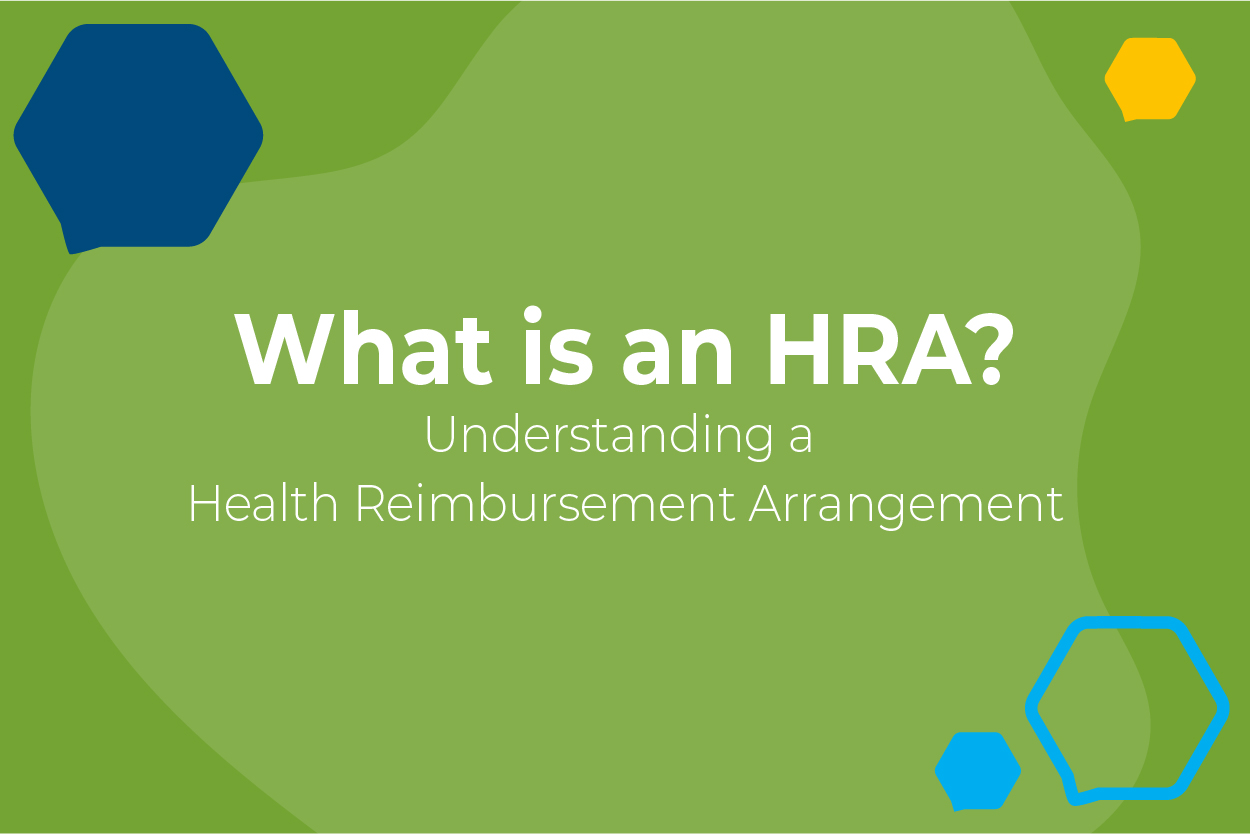
What Is an HRA? Understanding Health Reimbursement Arrangements
For many companies and individuals, navigating the complicated landscape of employer-provided health benefits can be confounding. At Benafica, we’re here to help. We partner with companies both large and small to help determine the best benefits options to meet their needs. In this blog, we explain one benefit option many employers are increasingly opting to offer: health reimbursement arrangements, better known as HRAs.
Let’s break down what HRAs are, the different types employers can offer, and how they can benefit your company as a whole.
What Is an HRA?
Skip the read and watch our video
A health reimbursement agreement (HRA) is an employer-owned and funded health spending agreement designed to reimburse employees tax-free for qualifying healthcare expenses.
Depending on the HRA, funds may also be used to reimburse employees for individual insurance premiums. Employers who elect to offer these arrangements are eligible to claim a tax deduction for any reimbursements they issue through the plan.
Employers who elect to offer HRAs allocate a per-employee monthly allowance for eligible healthcare spending. When you opt to offer an HRA to your employees, it’s up to you to establish which healthcare expenses qualify for reimbursement – eligible healthcare costs, individual insurance premiums, or a combination of both. You’ll also determine whether unused HRA funds expire at year-end or roll over from year to year, depending on the type HRA you offer.
How Does a Health Reimbursement Arrangement Work?
It’s important to acknowledge that unlike a health savings account (HSA), a health reimbursement agreement is not an employee-accessible account. With an HRA, employees may not withdraw funds and use them to cover healthcare expenses.
Instead, they pay out of pocket for healthcare costs and then request reimbursement for qualifying expenses up to a predetermined amount. However, should the employer choose to provide an HRA debit card, it’s possible for employees to receive reimbursement at the time of service. (See IRS Publication 502 for an exhaustive list of eligible expenses.)
If employees exhaust the funds in an HRA, they must pay for subsequent healthcare costs out of pocket or with funds contained in a flexible spending account or HSA, if applicable. It’s important to note that employers must make equal contributions for all staff members within each employee class (full-time, part-time, etc.). However, older workers or those with qualifying dependents may be eligible to receive more.
Because HRAs are non-portable, when employees leave the company, whether voluntarily or by termination, an HRA does not accompany them. According to IRS stipulations, if any employer-provided funds remain, employees are entitled to a predetermined runout period defined by their specific HRA plan. During this time, they may submit requests for reimbursement of eligible expenses incurred during their employment period.
What Types of HRAs Are Available?
As of January 1, 2020, six unique types of HRAs are available to employers. Below, you’ll find a brief overview of what each HSA option entails:
- Individual Coverage HRA (ICHRA)
Employers of any size may offer Individual Coverage HRAs, and if established correctly, this HRA option satisfies the employer mandate for ACA compliance. With an ICHRA, there is no maximum contribution cap, and employees may request reimbursement for individual health insurance premiums, as well as other qualifying medical expenses. Watch our ICHRA video now.
- Qualified Small Employer HRA (QSEHRA)
QSEHRA plans are available for small employers with fewer than 50 employees. This plan allows reimbursement for individual health insurance premiums, as well as health coverage under other qualifying insurance plans. QSEHRA plans are subject to a maximum annual contribution cap. Watch our QSEHRA video now.
- Group Coverage HRA (GCHRA)
GCHRAs, also referred to as integrated HRAs, can only be offered in conjunction with group health insurance plans. Typically, this type of HRA is offered alongside a high-deductible plan and employees may request reimbursement for insurance deductibles, co-insurance costs, and other qualifying healthcare expenses. Employers have the option to roll over funds at year-end.
- Excepted Benefit HRA (EBHRA)
EBHRAs can only be offered alongside traditional group health insurance plans. However, employees are not required to enroll in a group health insurance plan to take part in an EBHRA. With this plan, employees can request reimbursement for short-term insurance coverage, as well as dental and vision coverage. Other qualifying healthcare expenses are also eligible for reimbursement. EBHRA plans are subject to a maximum annual contribution cap.
- Dental/Vision HRA
Employers who wish to reimburse for qualifying dental and vision expenses have the option of extending this plan to their employees. Funds can roll over at year-end, depending on the employer’s preference.
- Retiree HRA
This plan is designed to assist with payment of eligible medical expenses for retired employees. Retirees may request tax-free reimbursement for qualifying medical expenses, including premiums for Medicare Part A, B, and D, as well as the Medicare Advantage Plan and Medicare Supplement Plan. COBRA premiums are also eligible for reimbursement.
Offering an HRA Plan: Key Advantages for Employers
Though each type of HRA offers its own unique benefits, collectively, HRAs afford employers more control over their annual health benefits budget. Employers who opt to offer HRA plans enjoy a variety of advantages, including:
- As the sole owner and contributor to the HSA, the employer can more easily design a plan that aligns with the healthcare needs of its employees.
- Expense control. HSAs allow employers to better plan their annual budgets because contributions are determined solely by the employer. HRAs offered in conjunction with high-deductible health plans can also result in decreased premium costs.
- Tax benefits. Employer reimbursements through HRAs are 100% tax deductible.
- Risk mitigation. Because employers typically reimburse for covered expenses after employees incur healthcare expenses, HRAs can help reduce the risk of benefit fraud.
- Talent recruitment and retention. Offering an HRA as part of a well-rounded benefits package can help employers appeal to highly qualified applicants and retain talented employees.
Ready to Discuss Your HRA Options? Contact Benafica Today
At Benafica, it’s our goal to teach companies and individuals about available health benefits options, so they can confidently select the plan that best meets their needs. Whether you’re a small or large company, if you’re interested in learning more about your HRA options, get in touch with our team! To learn more about our services, feel free to give us a call today at 651-287-3253 or connect with us online, and we’ll be in touch!
Recent
Search
Topics
- Employee Benefits (24)
- HRA (16)
- Insights (12)
- ICHRA (9)
- Employer (8)
- News (8)
- QSEHRA (7)
- COBRA (4)
- Individual Benefits (4)
- Health Insurance Carrier Updates (3)
- Cafeteria Plan (2)
- Individual Life Insurance (2)
- Section 125 Plan (2)
- Videos (2)
- Words From Our Founder (2)
- Agents (1)
- Benafica (1)
- Dental (1)
- GCHRA (1)
- HSA (1)
- Legislative Updates (1)
- Lifestyle Savings Account (1)
- Medicare (1)
